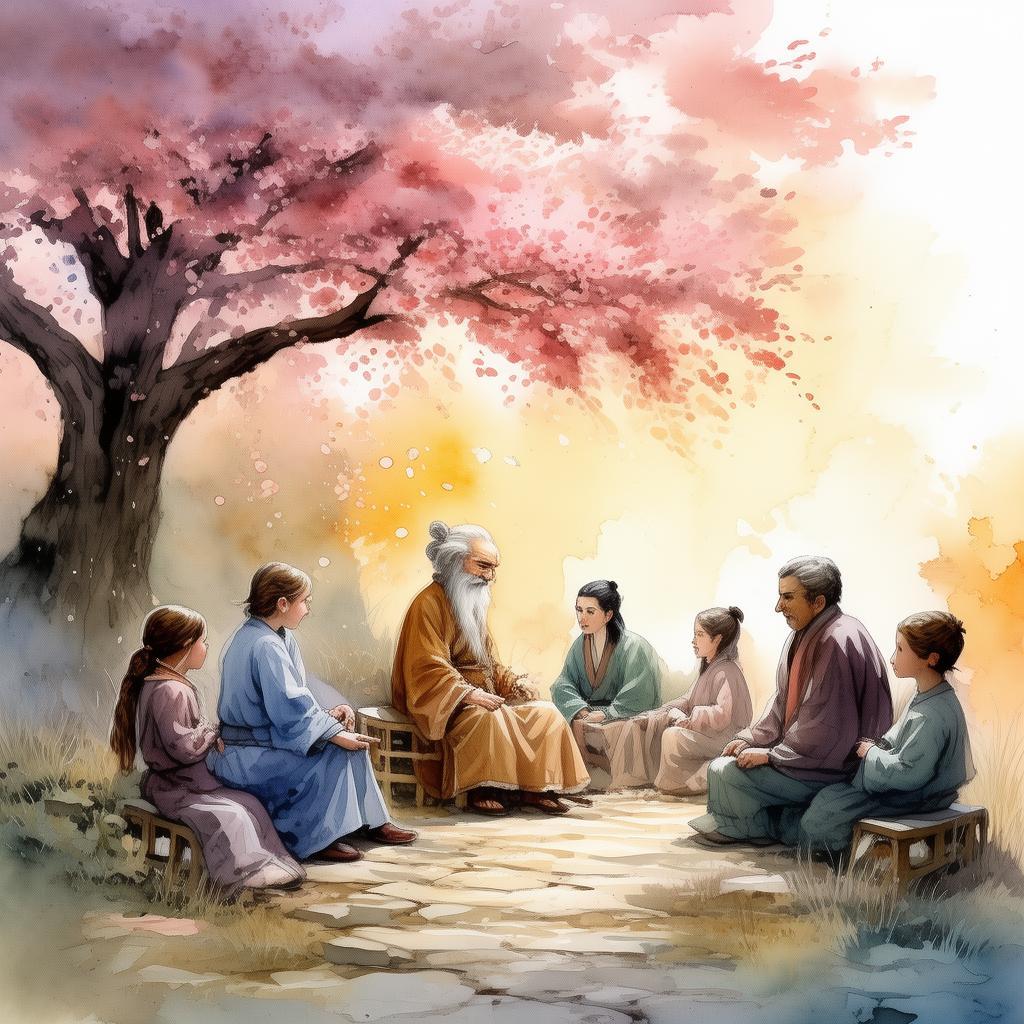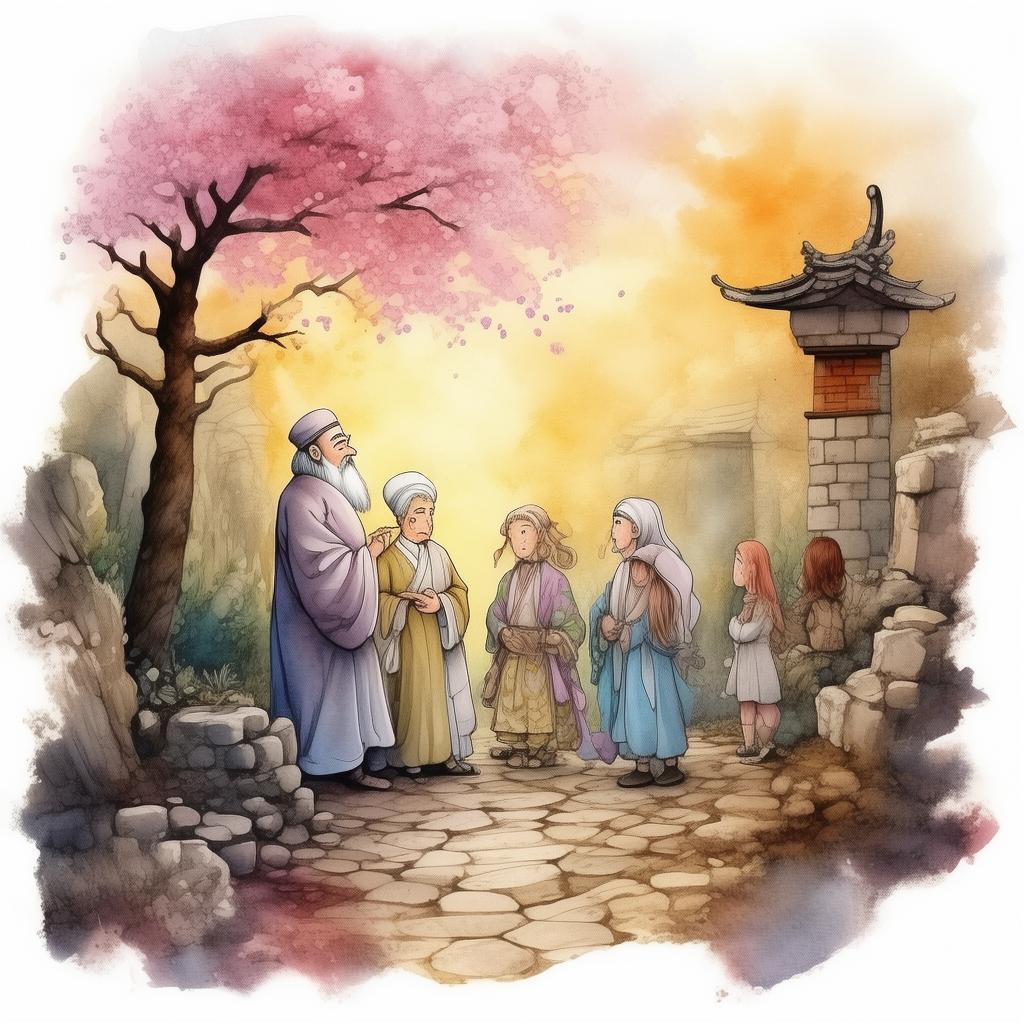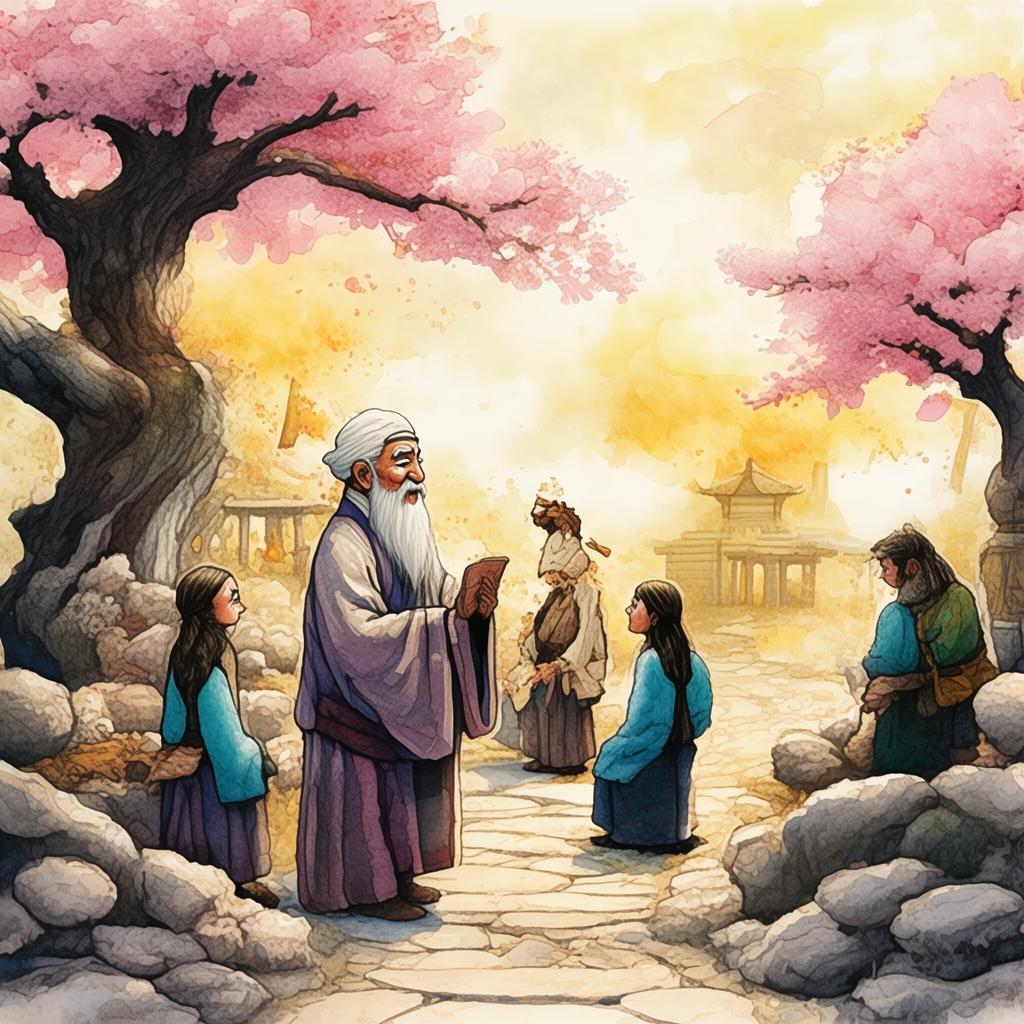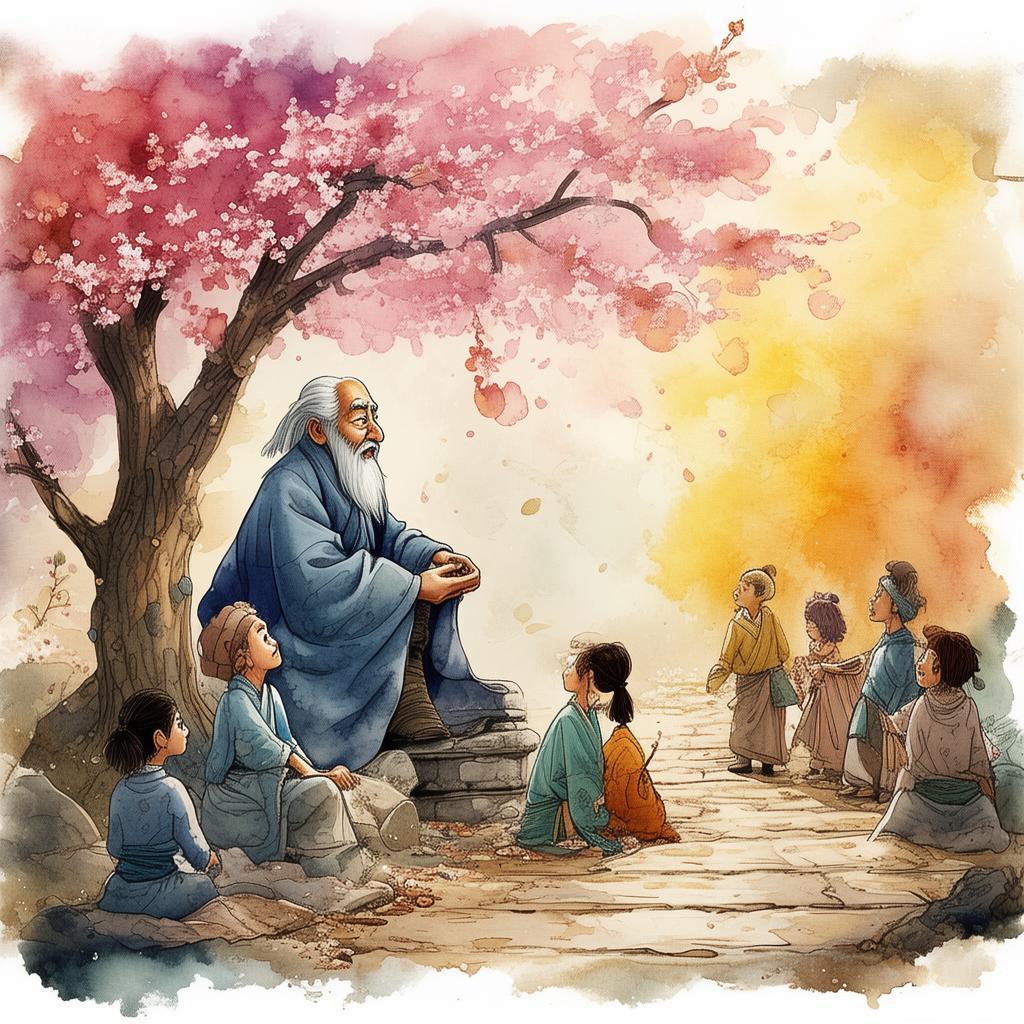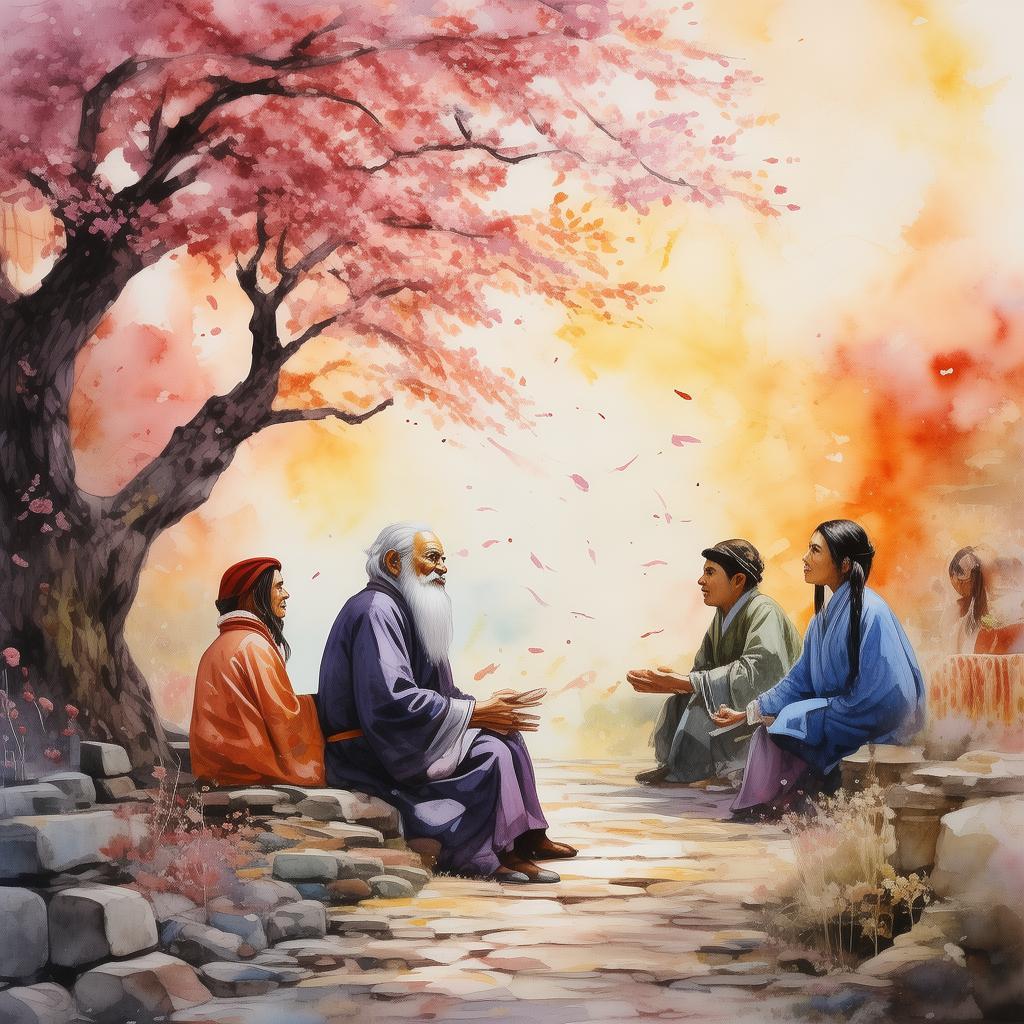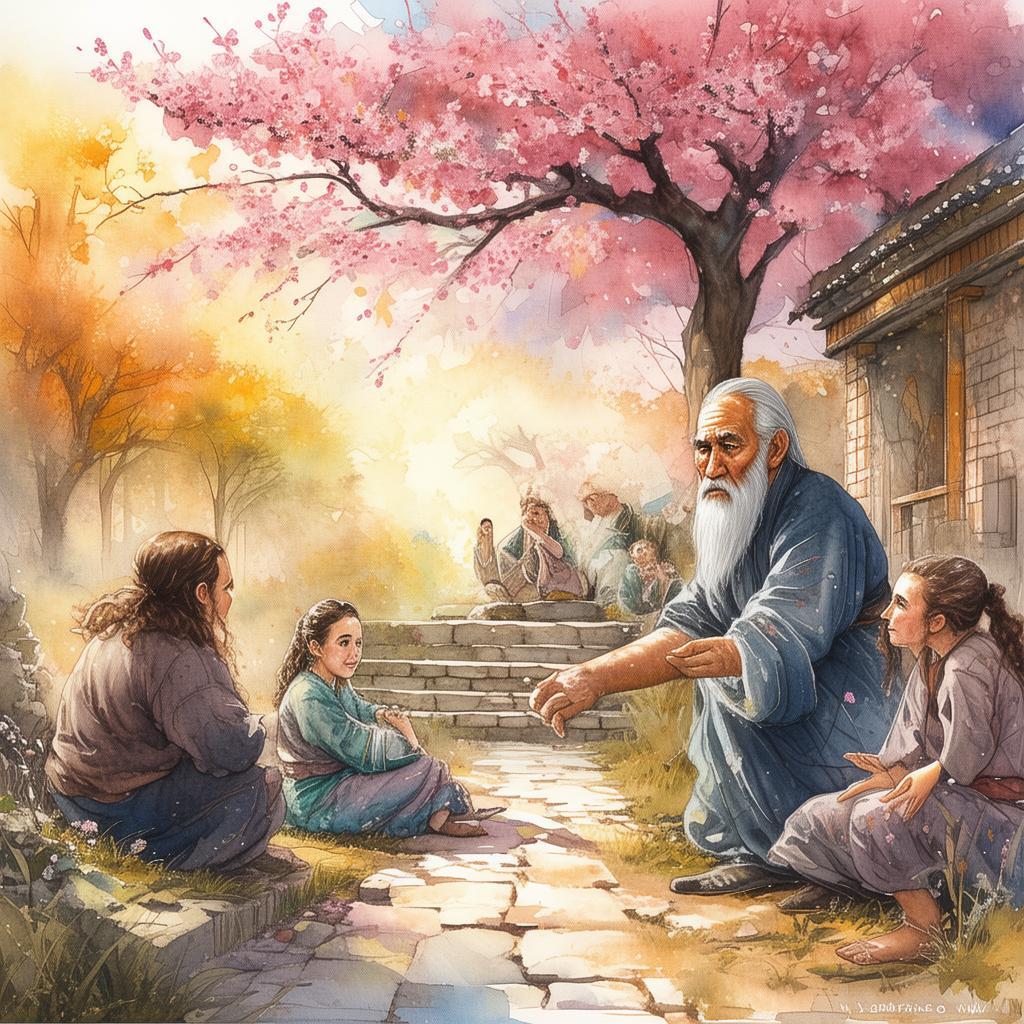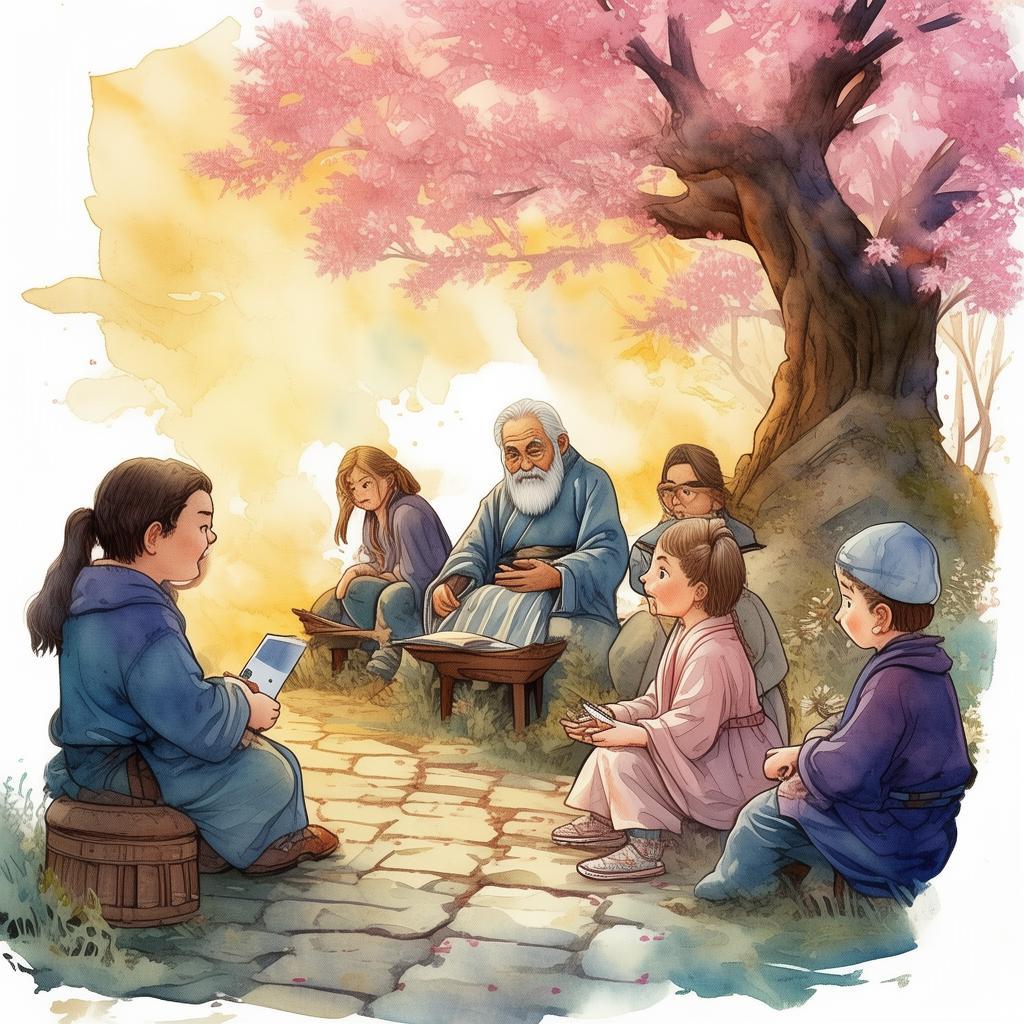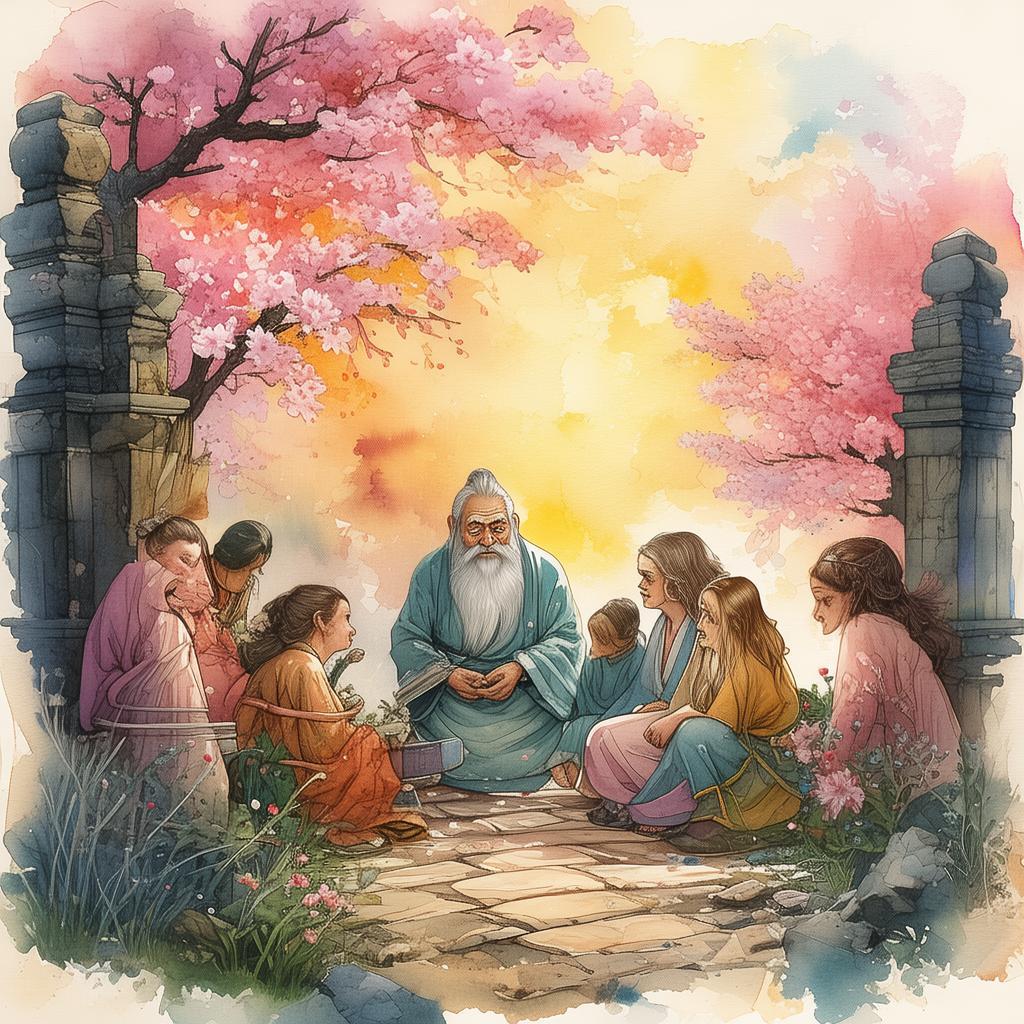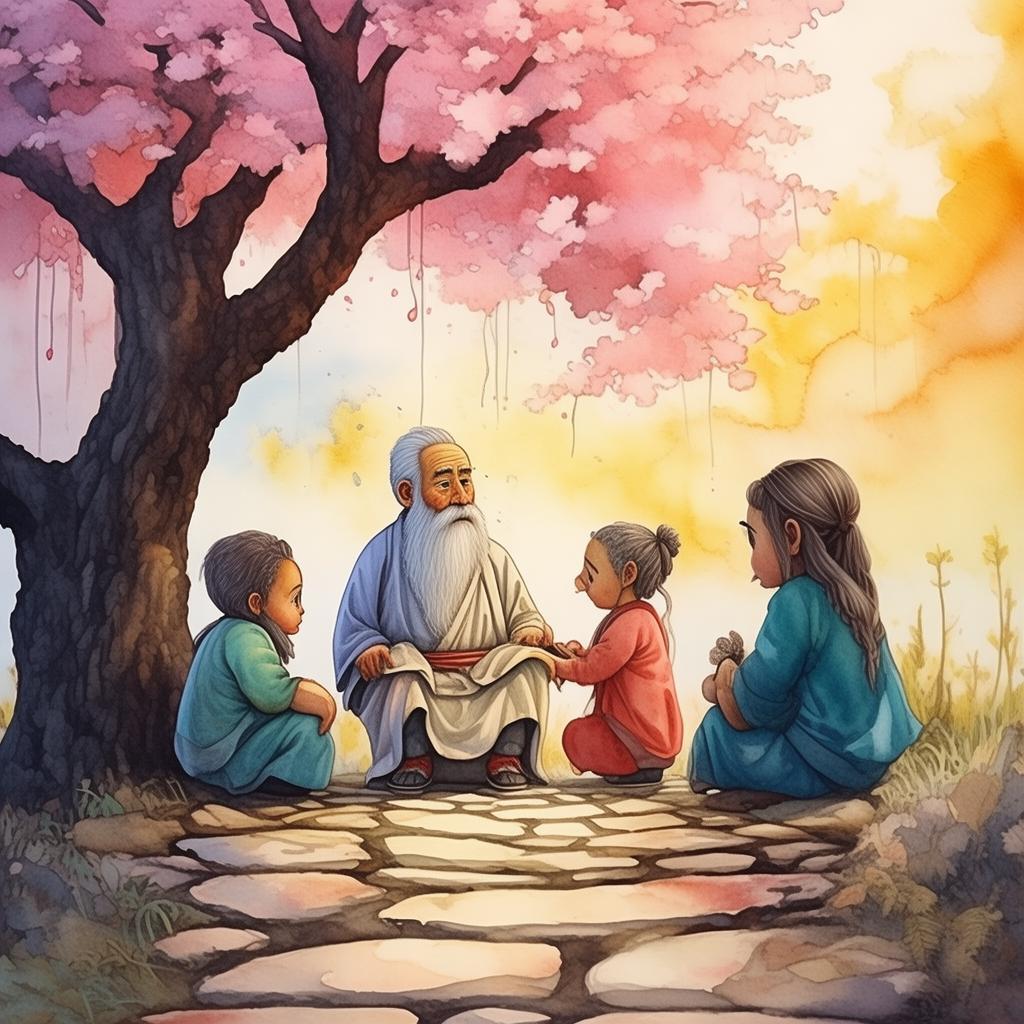Wang Anshi's Lament: The Paradox of Poetic Perfection
In the bustling capital of ancient China, there lived a man whose words could stir the hearts of the people and whose policies could shape the fate of the empire. Wang Anshi, a poet of unparalleled talent and a statesman of great ambition, found himself at the crossroads of his own creation. The story of his life is a testament to the age-old adage, "The pen is mightier than the sword," yet it is also a tale of the tragic dilemma that comes with wielding that pen.
The opening of Wang Anshi's story is a vivid depiction of his early life, where he was born into a family of scholars. His father, a revered poet, instilled in him a love for literature and a deep understanding of the world. Wang Anshi's talent was evident from a young age, as he composed verses that were both beautiful and profound. His first collection, "The Whispering Winds," won him acclaim across the land, and he was soon recognized as a master of the written word.
As Wang Anshi grew older, his love for poetry was matched by his desire to serve his country. He believed that through the power of his words, he could reform the corrupt bureaucracy and bring prosperity to the people. His political ambition was as fierce as his poetic talent, and he soon found himself at the center of a contentious debate within the imperial court.
The conflict in Wang Anshi's life was not just between his poetic and political aspirations but also between the ideals of the past and the demands of the present. He proposed a series of reforms that would fundamentally change the way the empire was governed. His opponents, however, saw his policies as a threat to the established order. They accused him of being a radical and a traitor to the empire.
Wang Anshi's dilemma was further compounded by the personal cost of his political endeavors. His reforms were met with resistance, and he found himself isolated and vilified. The people who once admired him for his poetry now vilified him for his policies. His friends and family turned against him, and he was left alone, his spirit broken.
In the midst of his despair, Wang Anshi turned to his poetry for solace. He composed "The Lament of the Poet," a verse that captured the essence of his tragic dilemma:
"Between the pen and the sword, I stand,
A poet in a land of war.
My words may change the world, but they cannot save my soul,
For in the end, I am but a man."
As the years passed, Wang Anshi's reforms were eventually overturned, and he was exiled to a remote province. It was there, in the solitude of the countryside, that he found a moment of clarity. He realized that his poetry, while powerful, could not protect him from the harsh realities of the world. Yet, it was also his poetry that gave him the strength to endure.
In his final years, Wang Anshi's poetry became more introspective, reflecting on his life and the choices he had made. He composed "The Farewell to the World," a verse that summed up his life's journey:
"I leave behind a legacy of words,
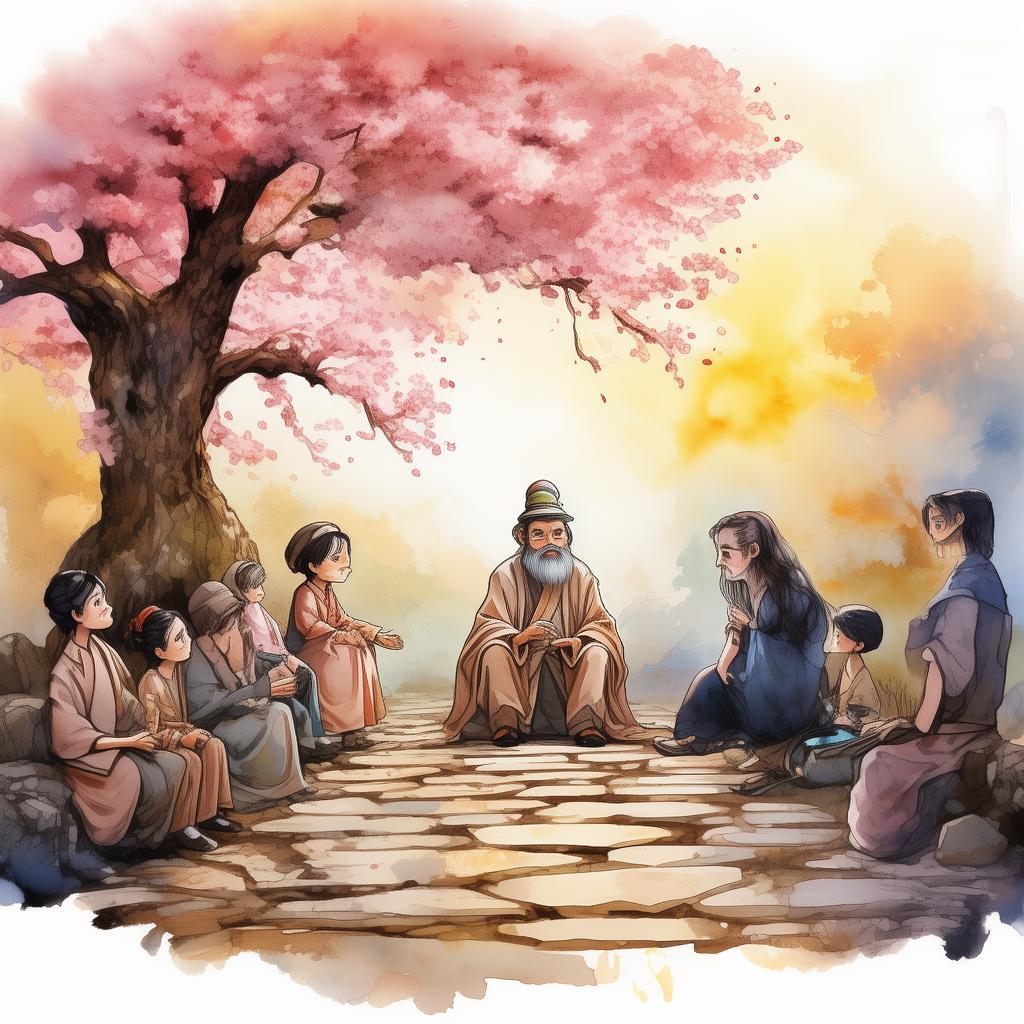
A testament to the human soul.
In the end, my pen may have failed,
But my poetry will live on forever."
Wang Anshi's life was a tragic dilemma, a story of a man who found himself torn between the power of his words and the demands of his time. His legacy is a reminder that the pursuit of greatness often comes at a great cost. Yet, it is also a testament to the enduring power of the human spirit and the eternal appeal of poetic perfection.
As the sun set on the ancient empire, Wang Anshi's story became a part of the tapestry of Chinese history. His poetry continues to be celebrated, and his reforms are still debated. The paradox of his life remains, a reminder that the pursuit of greatness is often a journey filled with both triumph and tragedy.
✨ Original Statement ✨
All articles published on this website (including but not limited to text, images, videos, and other content) are original or authorized for reposting and are protected by relevant laws. Without the explicit written permission of this website, no individual or organization may copy, modify, repost, or use the content for commercial purposes.
If you need to quote or cooperate, please contact this site for authorization. We reserve the right to pursue legal responsibility for any unauthorized use.
Hereby declared.
